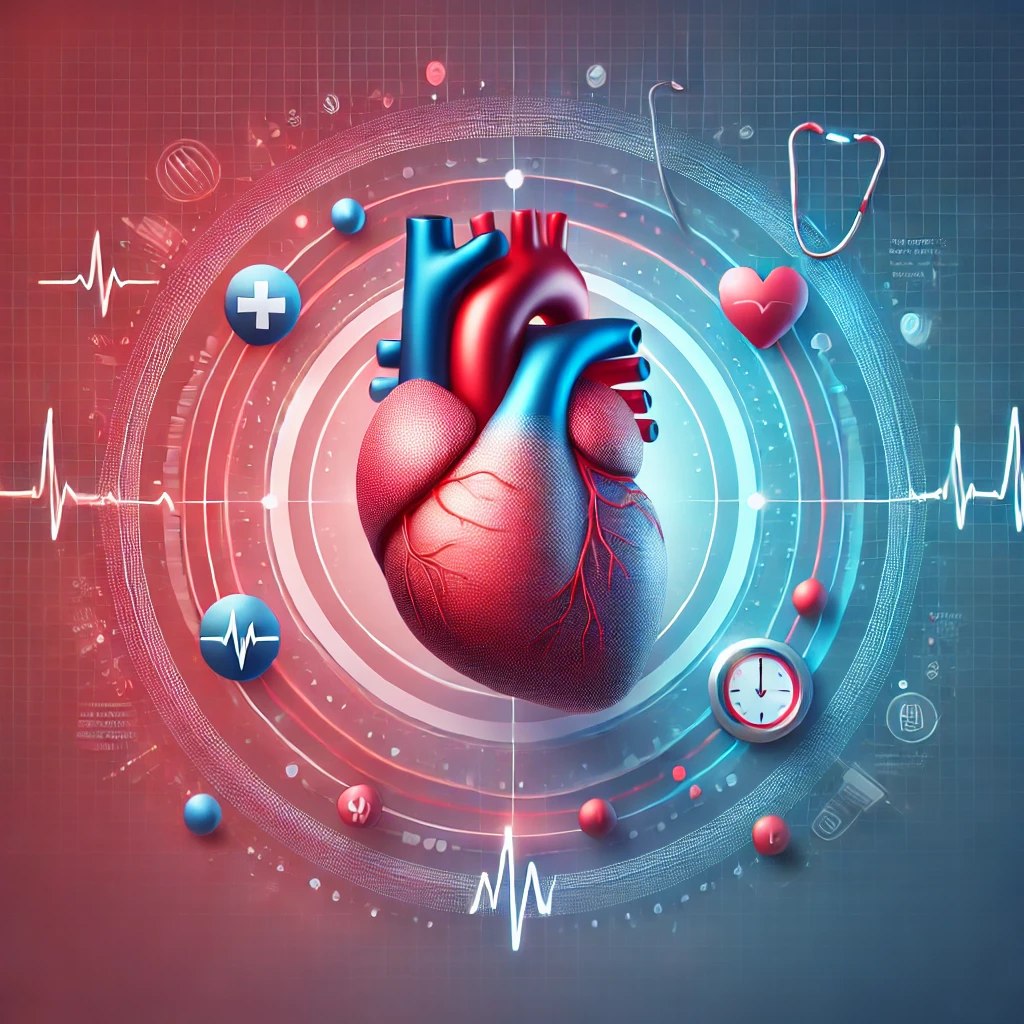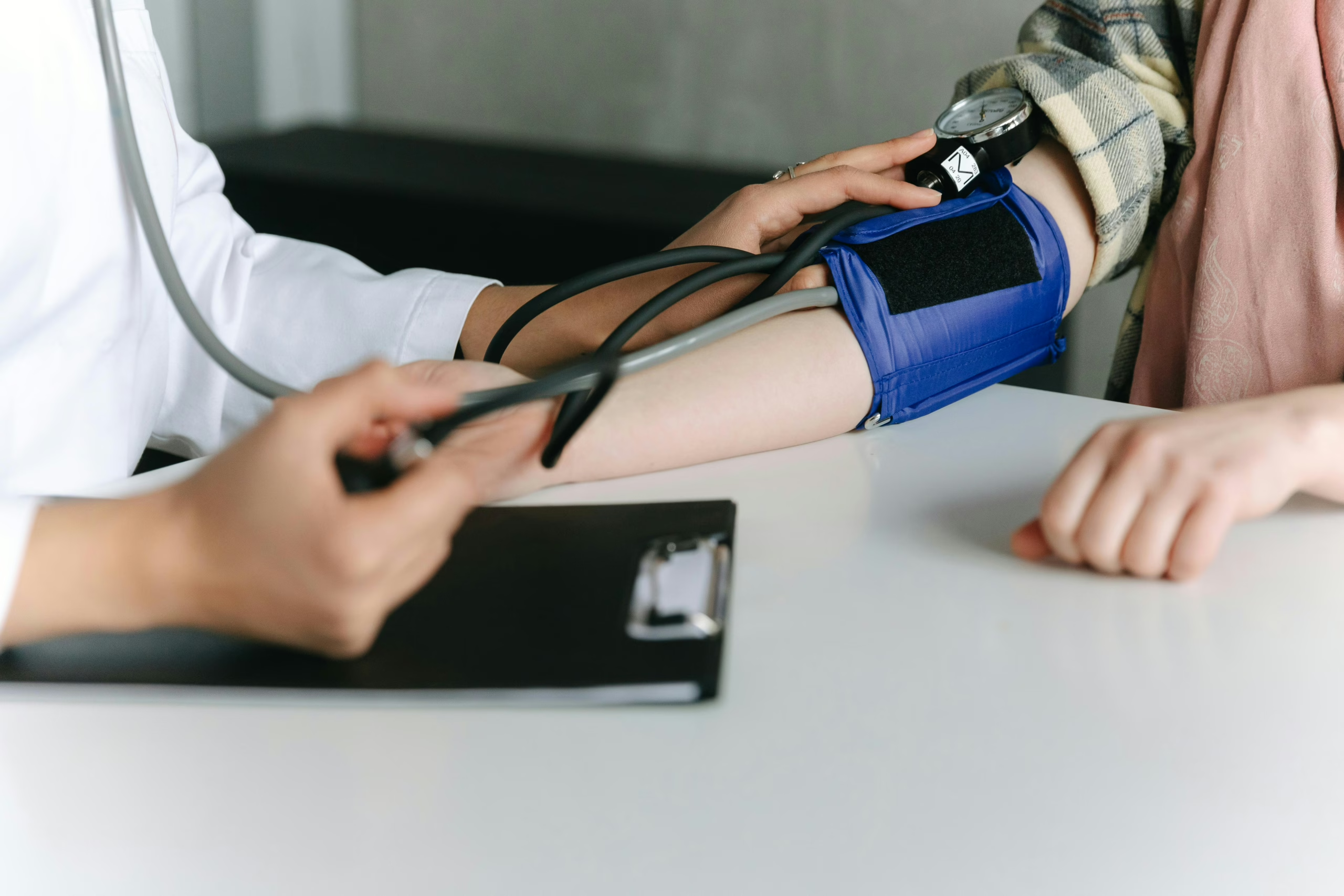Our Services
- Diabetes Mellitus
- Hypertension
- Osteoporosis
- Inflammatory Bowel Diseases
- Hypothyroidism and Endocrine Diseases
- Chronic Respiratory Diseases
- Chronic Neurological Diseases
- Chronic Liver Diseases
- Chronic Kidney Diseases
- Cardiovascular Diseases
- Arthritis and Rheumatic Diseases
- Confidential STD Testing & Treatment
- Women’s Health Screenings
- Men’s Health Screenings
- Obesity
- Vitamin Infusions
- Weight Management

Cardiovascular Diseases
Cardiovascular diseases (CVDs) are a group of disorders affecting the heart and blood vessels, including heart failure, ischemic heart disease, and valvular diseases. These conditions are among the leading causes of morbidity and mortality worldwide.
At our clinic, we take a comprehensive approach to cardiovascular health, focusing on dietary and lifestyle modifications, physical activity, and pharmacological treatments in collaboration with specialized cardiologists.
Types of Cardiovascular Diseases
1. Ischemic Heart Disease (Coronary Artery Disease – CAD)
- Occurs when arteries become narrowed or blocked, reducing blood flow to the heart.
- Causes: Atherosclerosis (plaque buildup), high cholesterol, hypertension.
- Symptoms: Chest pain (angina), shortness of breath, fatigue.
2. Heart Failure
- A condition where the heart cannot pump blood effectively.
- Causes: High blood pressure, coronary artery disease, previous heart attacks.
- Symptoms: Swelling in legs, fatigue, shortness of breath, rapid heartbeat.
3. Valvular Heart Diseases
- Dysfunction of the heart valves (stenosis, regurgitation, prolapse).
- Causes: Aging, infections (rheumatic fever), congenital defects.
- Symptoms: Irregular heartbeat, chest pain, dizziness, fatigue.
4. Hypertension-Related Heart Disease
- Chronic high blood pressure leads to heart muscle thickening and heart failure.
- Often asymptomatic until complications arise.
5. Arrhythmias (Irregular Heartbeats)
- Irregular electrical impulses affect the heart’s rhythm.
- Types: Atrial fibrillation, bradycardia, tachycardia.
- Symptoms: Palpitations, dizziness, fainting, shortness of breath.
Symptoms of Cardiovascular Diseases
Symptoms vary based on the specific condition but may include:
- Chest pain or discomfort (angina).
- Shortness of breath during activity or rest.
- Fatigue and weakness.
- Swelling in the legs, ankles, and feet.
- Irregular or rapid heartbeat (palpitations).
- Dizziness or fainting episodes.
Cardiovascular Disease Management & Treatment
1. Early Detection & Monitoring
- Electrocardiogram (ECG) and stress tests.
- Echocardiogram & cardiac imaging for structural assessment.
- Regular cholesterol and blood pressure checks.
2. Pharmacological Treatments
- Antihypertensives – Control blood pressure (beta-blockers, ACE inhibitors).
- Statins – Reduce cholesterol and prevent atherosclerosis.
- Antiplatelet & anticoagulant therapy – Prevent blood clots.
- Diuretics – Manage heart failure symptoms.
- Antiarrhythmic medications – Regulate heart rhythm disorders.
3. Lifestyle & Dietary Modifications
- Heart-healthy diet: Low in saturated fats, high in fiber, fruits, and vegetables.
- Limit salt intake to prevent high blood pressure.
- Reduce alcohol and quit smoking to lower risk factors.
- Maintain a healthy weight to prevent additional strain on the heart.
4. Physical Activity & Exercise
- Aerobic exercises (walking, swimming, cycling) to strengthen the heart.
- Strength training for cardiovascular endurance.
- Stress management techniques (yoga, meditation, deep breathing).
5. Medical Procedures & Surgical Interventions
- Angioplasty & stent placement – Opens blocked arteries.
- Bypass surgery – Redirects blood flow around blocked arteries.
- Pacemakers & defibrillators – Manage arrhythmias.
- Valve repair/replacement – Corrects valvular diseases.
Complications of Untreated Cardiovascular Diseases
Without proper management, cardiovascular diseases can lead to:
- Heart attacks & strokes (from blocked arteries).
- Congestive heart failure (chronic weakening of the heart).
- Aneurysms & blood clots.
- Peripheral artery disease (circulation problems in limbs).
- Kidney damage & vision impairment due to hypertension.
Advantage Cardiovascular Care
We offer a comprehensive cardiovascular care program, including:
✅ Preventive screenings & early diagnosis.
✅ Personalized heart-healthy diet & exercise plans.
✅ Collaboration with expert cardiologists for advanced treatments.
✅ Medication management & regular check-ups.
✅ Lifestyle coaching to reduce cardiovascular risk factors.


Health Tips & Info
- Eat a balanced diet rich in omega-3 fatty acids and fiber.
- Stay active with regular physical exercise.
- Monitor blood pressure and cholesterol levels regularly.
- Avoid smoking and excessive alcohol consumption.
- Manage stress levels through mindfulness techniques.